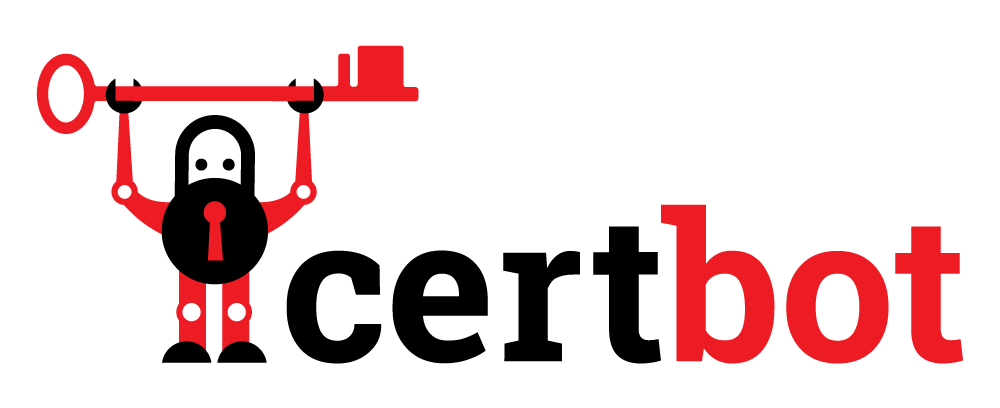Certbot is part of EFF’s effort to encrypt the entire Internet. Secure communication over the Web relies on HTTPS, which requires the use of a digital certificate that lets browsers verify the identity of web servers (e.g., is that really google.com?). Web servers obtain their certificates from trusted third parties called certificate authorities (CAs). Certbot is an easy-to-use client that fetches a certificate from Let’s Encrypt—an open certificate authority launched by the EFF, Mozilla, and others—and deploys it to a web server.
Anyone who has gone through the trouble of setting up a secure website knows what a hassle getting and maintaining a certificate is. Certbot and Let’s Encrypt can automate away the pain and let you turn on and manage HTTPS with simple commands. Using Certbot and Let's Encrypt is free.
The best way to get started is to use our interactive guide. It generates instructions based on your configuration settings. In most cases, you’ll need root or administrator access to your web server to run Certbot.
Certbot is meant to be run directly on your web server on the command line, not on your personal computer. If you’re using a hosted service and don’t have direct access to your web server, you might not be able to use Certbot. Check with your hosting provider for documentation about uploading certificates or using certificates issued by Let’s Encrypt.
If you'd like to contribute to this project please read Developer Guide.
This project is governed by EFF's Public Projects Code of Conduct.
Documentation: https://certbot.eff.org/docs
Software project: https://github.com/certbot/certbot
Changelog: https://github.com/certbot/certbot/blob/master/certbot/CHANGELOG.md
For Contributors: https://certbot.eff.org/docs/contributing.html
For Users: https://certbot.eff.org/docs/using.html
Main Website: https://certbot.eff.org
Let's Encrypt Website: https://letsencrypt.org
Community: https://community.letsencrypt.org
ACME spec: RFC 8555
ACME working area in github (archived): https://github.com/ietf-wg-acme/acme
- Supports multiple web servers:
- Apache 2.4+
- nginx/0.8.48+
- webroot (adds files to webroot directories in order to prove control of domains and obtain certificates)
- standalone (runs its own simple webserver to prove you control a domain)
- other server software via third party plugins
- The private key is generated locally on your system.
- Can talk to the Let's Encrypt CA or optionally to other ACME compliant services.
- Can get domain-validated (DV) certificates.
- Can revoke certificates.
- Supports ECDSA (default) and RSA certificate private keys.
- Can optionally install a http -> https redirect, so your site effectively runs https only.
- Fully automated.
- Configuration changes are logged and can be reverted.


